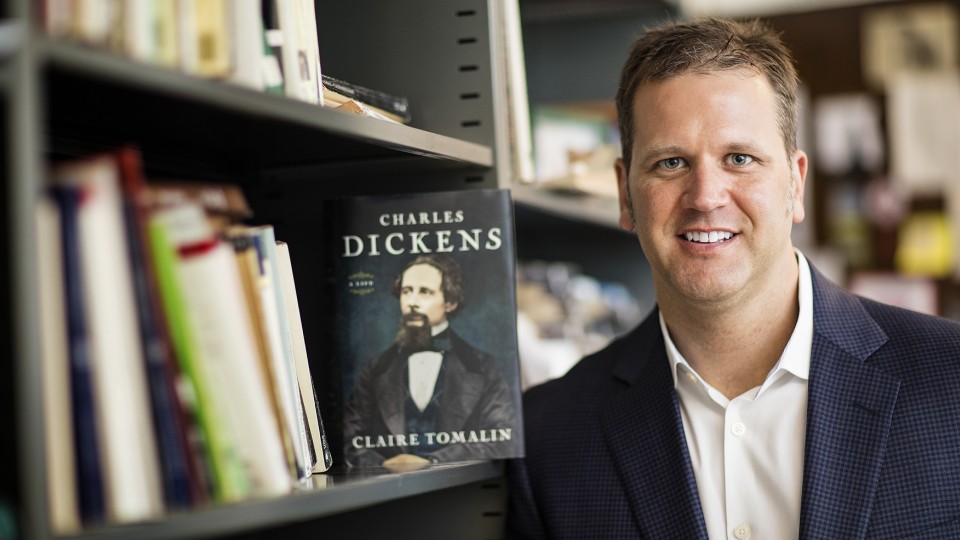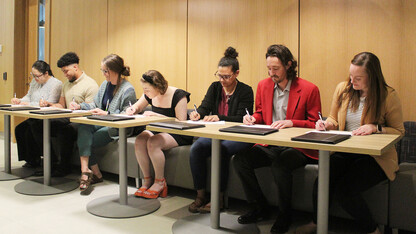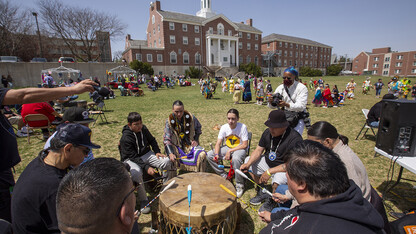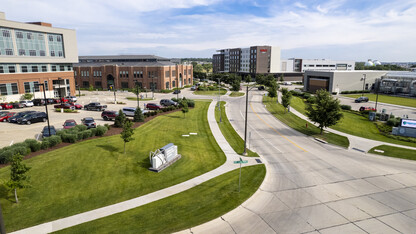· 3 min read
Capuano’s work with Dickens Project grows

Four years ago, Victorian scholar Peter Capuano was leading a seminar at the apex of his field, alongside a distinguished Victorian novel expert from MIT. He remembers it as a somewhat surreal experience – here he was, a junior faculty member, discussing Charles Dickens’ “Bleak House” with the veteran scholar.
“I was nervous,” Capuano said.
Today, the UNL assistant professor of English has become a regular presence in the world-renowned scholarly consortium known as The Dickens Project. Along the way, UNL graduate students have gained experience in the field and he’s helped the university stand with academic giants such as Yale, Princeton and Stanford.
Capuano and UNL were invited in 2011 into the select project by its director, John Jordan. Most recently, Capuano was asked to join the editorial board of Dickens Quarterly, the journal of the Dickens Society.
The Dickens Project is a consortium for research on Charles Dickens and 19th-century literary and cultural studies. Based at the University of California Santa Cruz, the 34-year-old project hosts the Dickens Universe Conference each summer, which attracts more than 500 attendees. The gathering welcomes not only academy members and graduate students, but also about 300 self-described Dickens fans.
“It’s unique because it has top-flight researchers in the field, but when you give talks, you have to speak to graduate students, faculty in your field and the general public,” Capuano said.
In addition to the well-known summer conference, the Dickens Project also focuses its efforts on graduate student mentorship and training, as well as further research collaborations through conferences, institutes, colloquia, lectures and an annual research institute.
This year’s Dickens Universe conference began Aug. 2, with Capuano leading sessions for graduate students on topics such as how to get published and navigating the job market. In the past, he has led sessions on pedagogical approaches to the Victorian novel and has given other lectures. As an invited faculty member, his role changes each year.
This core Dickens Project membership – UNL is one of 40 member institutions, but one of five Big Ten schools – is important for the university, said Marco Abel, professor and chair of the Department of English.
“Nineteenth Century British literature remains central to English studies, and the Dickens Project is one of the most prestigious and best-run annual events in 19th British literary studies,” he said. “Our ability to be part of it, thanks to Pete’s initiative, allows the work done by our faculty, in our department, to become more visible.
The membership allows UNL to improve its reputation by association, Abel said –the institutions that are members of the Dickens Project are among the best in the country when it comes to 19th Century British literary studies, or to literary studies in general.
“In the long run our reputation is bound to gain just because our program, which by virtue of its geographical location is lesser known than some of the other CIC programs, will be more on the minds of leading scholars,” Abel said.
Membership in the project also gives UNL graduate students an opportunity to network with Victorianists from research-intensive universities and present their own research at a winter conference, where they receive feedback from senior researchers.
“They won’t allow a faculty member or institution on board unless you make a serious commitment to graduate students,” Capuano said. “We bring graduate students with us who are brought into a world of 19th century scholars from top research universities.”







